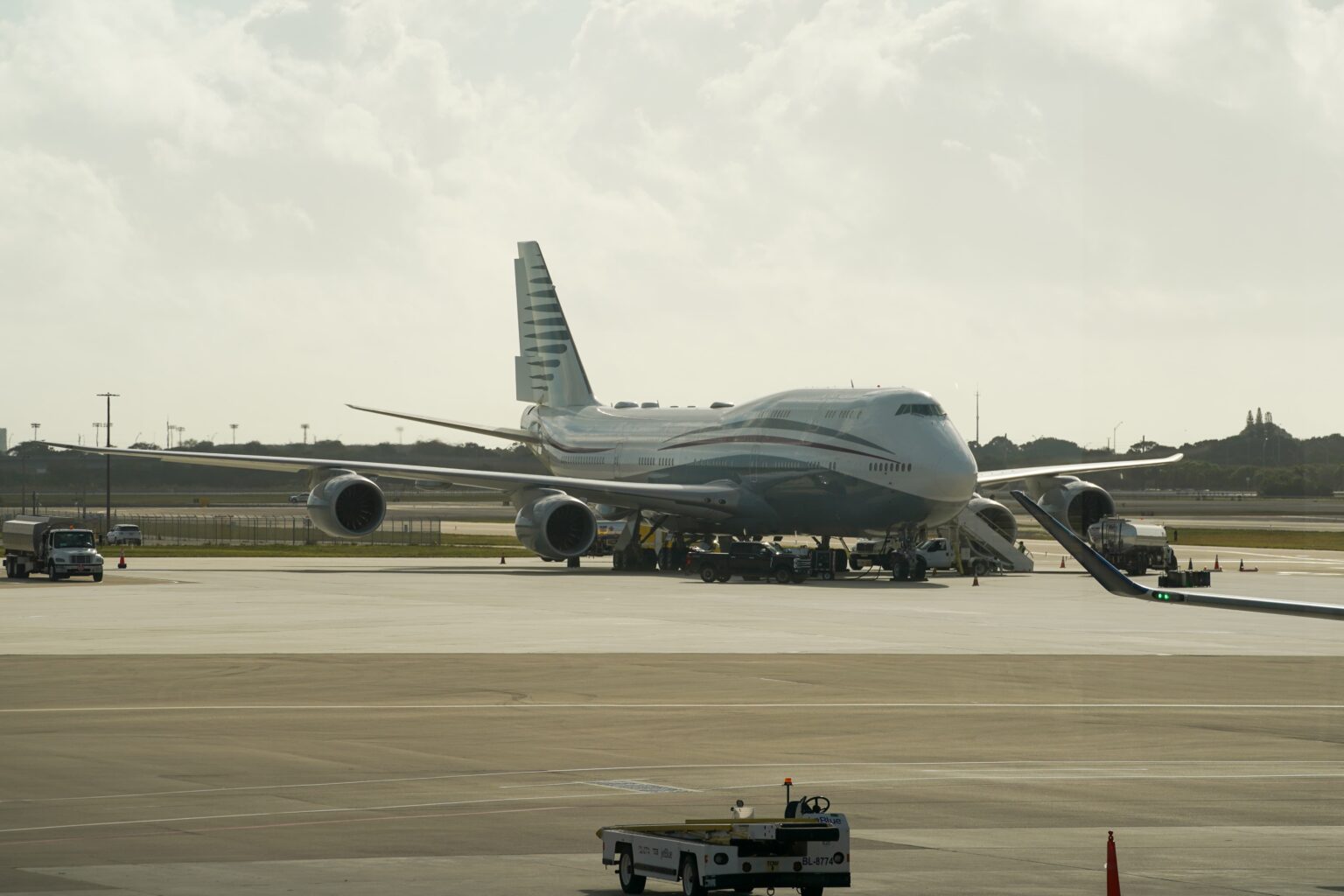In a highly unusual move that’s already sparking legal and ethical debate, the Trump administration is preparing to accept an ultra-luxurious Boeing 747-8 aircraft from the royal family of Qatar. The aircraft, often referred to as a “palace in the sky” due to its lavish interior, is set to serve as Air Force One during Trump’s current term, before being transferred to the Trump Presidential Library Foundation after he leaves office.
A Gift Like No Other
Sources familiar with the arrangement say the aircraft will be a formal gift from Qatar to the United States, one of the most valuable ever offered by a foreign government. The estimated value of the plane, excluding the advanced communications and security technology required for presidential travel, is around $400 million.
The aircraft, currently over a decade old, is expected to undergo significant modifications by the U.S. Air Force to meet the stringent military and security standards required for transporting the president. The aviation company L3Harris has reportedly been contracted to carry out these modifications.
Until Trump leaves office, the jet will operate as Air Force One, and after that, ownership is planned to transfer to his presidential library foundation. All related transfer costs are to be covered by the U.S. Air Force.
Legality and Transparency Under the Microscope
This proposed arrangement is unprecedented in its structure and value. Legal experts and government officials have examined whether such a gift could be accepted without violating U.S. law. A detailed legal review was conducted by the White House counsel’s office and the Department of Justice, concluding that the transaction does not breach any laws prohibiting bribery or violate the Constitution’s emoluments clause, which restricts U.S. officials from accepting gifts from foreign powers.
To ensure compliance, the gift is being framed not as a personal donation to Donald Trump but as a gift to the United States government—specifically, the Department of Defense. Later, the plane will be reassigned to the Trump Presidential Library Foundation. Legal memos were prepared to support this interpretation, and officials from both the DOJ and White House legal team have reportedly signed off on the arrangement as legally sound.
According to statements from both parties, the agreement is being presented as a transparent and lawful process, in line with all applicable guidelines concerning foreign gifts to U.S. officials.
Political Reactions and Public Concern
Despite legal backing, the announcement has already drawn sharp criticism from political opponents, who have raised concerns about potential influence from foreign powers. Critics argue that the scale and nature of the gift, regardless of legal justification, represent a troubling form of foreign involvement in U.S. affairs.
The fact that the plane will eventually become property of the Trump Presidential Library Foundation, rather than remain solely under government ownership, has fueled further scrutiny. Concerns have also been raised about whether the acceptance of such a luxurious asset truly aligns with the principles of public service and national interest.
Nonetheless, the administration has stood firm, presenting the gift as a practical solution amid ongoing delays in the production of new presidential aircraft. The current Air Force One fleet, consisting of aging Boeing 747-200s, has long been due for replacement. However, setbacks in Boeing’s original contract have delayed delivery well beyond Trump’s term.
A Stopgap Solution with Lasting Impact
This move appears to serve two purposes: to meet the immediate need for a modern presidential aircraft and to secure a symbolic and highly valuable asset for Trump’s legacy. By accepting Qatar’s aircraft for temporary presidential use, the administration circumvents the prolonged wait for Boeing’s updated Air Force One models, which are not expected for several more years.
At the same time, the eventual transfer to the Trump library ensures that the plane will not disappear from the public narrative once Trump leaves office. Instead, it will likely serve as a centerpiece of his presidential legacy—a luxury aircraft that, in many ways, reflects his brand and leadership style.
The implications of this arrangement—ethical, political, and diplomatic—are likely to unfold over time. For now, the Trump administration maintains that the transaction is both legal and in the best interest of the country, framing it as a win-win: a modern Air Force One delivered at no cost to taxpayers and a prestigious addition to a future presidential library.


